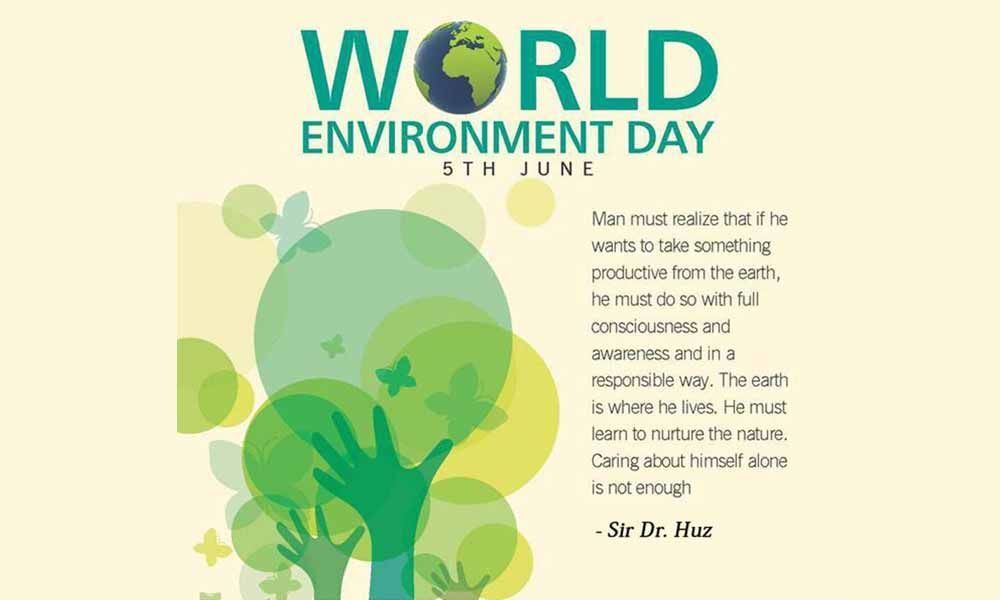Environment Protection Calls for a Multi-pronged Attack

Environmental issues somehow don’t seem to raise the adrenaline level in people who are otherwise educated, socially aware, very rational and responsible in their public and private utterances, viewpoints and behaviors.
Environmental issues somehow don't seem to raise the adrenaline level in people who are otherwise educated, socially aware, very rational and responsible in their public and private utterances, viewpoints and behaviors. Their general attitude towards these issues is like, well, it's all for social activists and government administrators to sort out, as I didn't cause the problem, it doesn't affect me or my family directly, and what can I do about it anyway? Well, such a mixture of callousness and couldn't-care-less-attitudes is what is making all of us part of the environment problem and not part of the solution.
Quite apart from observing such commemorative days, giving talks, writing blogs and even writing scholarly articles, each and every one of us must acknowledge the fact that we can and must transfer ourselves from the problem area to the solution area. How to do it is the million dollar question every citizen must somehow address and act on. For example, we can start with the simplest of all things such as opening the water tap in the morning. How often are we conscious of the fact that we let the tap run for unduly long periods of time when our water requirement for the moment is only a glassful or even a mouthful. We simply blame the servant maid for keeping the tap running while the problem lies with us in not educating the servant maids and teach them good habits of water management. In other words, we must micro-manage our water resources very carefully.
The paradox of water management at a macro-level in a country like India stares at us in our eyes. We know the rains come down during the monsoon and fill up the lakes and rivers to the best extent possible within the limited span of three months so that the water can last the remaining none months. But how often do we see lakes and riverbeds drying up double quick in January or February even after a good rainfall during the previous monsoon season of July-August-September, all simply because we use our water resource without proper planning for the lean period ahead.
Water management is but one of the multiple management skills that we need to cultivate, develop, nurture and integrate into our systems and procedures. There are many other major issues like air pollution, ground water depletion, climate change, use of plastics, garbage disposal and sanitation, noise pollution and so on. We now have additional issues such as light pollution with ultra-bright lighting at every conceivable point, which disturb brain development in children thanks to the absence of real night hours in the daily cycle in urban areas.
We need to be pro-active on the environmental front. More often that not, we wake up to an issue much later than it became a real problem affecting millions of people. Be it ground water depletion, garbage piling up or any other, our administrative systems are not geared up to foreseeing an issue and taking preventive steps to nip it in the bud. The general attitude of apathy in the system is characterized by statements like we will do the needful in due course of time which means actually no action for a very long time.
At a simplistic level which might even be sensible and sustainable, we must all reduce our consumption of resources across the board in each and every walk of life so that we stretch them to the fullest and increase their overall sustainability. There is a dictum in management that you can reduce any budget by ten percent without reducing the output, simply because we subconsciously adjust our mindset to the new norm which is not severe enough to damage our operational effectiveness.
We cannot afford to end this blog on a negative note. We have to call a half-empty glass a half-full one for the simple reason, or else the public psyche will become incorrigibly negative and hopeless. There are certainly good people at positions of authority and responsibility who are trying their best to contain the damage inflicted on the system and are also meeting with success in issues like plastic disposal. We have to keep our sense of optimism and strive forward without which no solution can even be dreamt of, let alone achieved.
By Warrior Dr. Srinivasan

